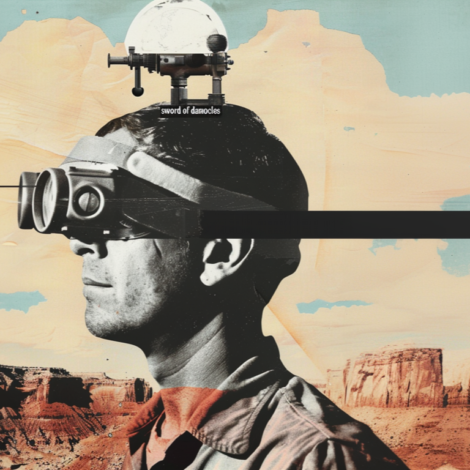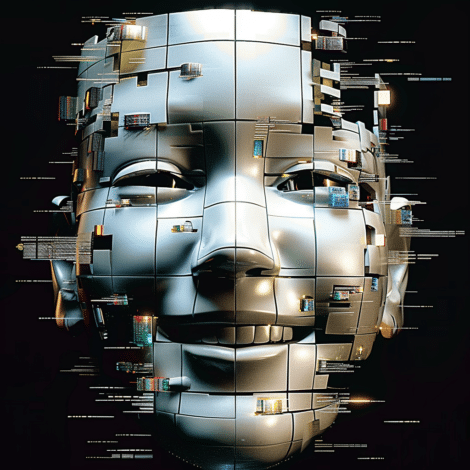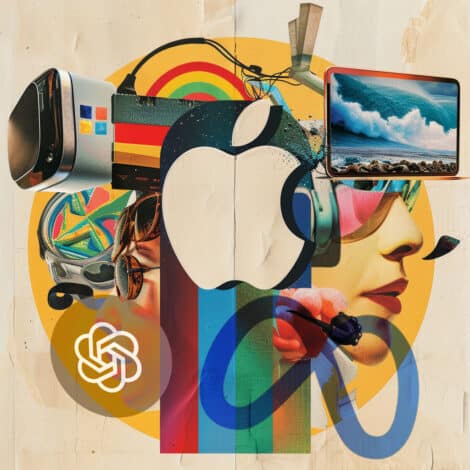Menu

THE FIRST STEPS OF VIRTUAL REALITY: A TRIP TO THE FUTURE
Writing – Zyonia
Virtual reality (VR) has come a long way since its humble beginnings. In the 1960s, Ivan Sutherland, known as the "father of computer graphics," developed the first virtual reality system called "The Sword of Damocles." This device, with its bulky helmet and rudimentary graphics, represented a primitive yet revolutionary vision of an immersive digital world.
A few years later, Jaron Lanier, coined the term "virtual reality" and founded VPL Research, one of the first companies to develop VR hardware such as gloves and headsets. Lanier envisioned VR as a tool to expand human creativity and open new forms of communication. His vision was to share complete digital worlds where people could interact and collaborate in ways never before possible.
The idea of virtual worlds has been a constant dream in the human imagination, from the utopias described in literature to the detailed simulations in modern video games. This longing was vividly reflected in the novel "Ready Player One" by Ernest Cline, where a vast virtual universe called OASIS becomes an escape for a humanity plagued by poverty and chaos. The protagonist, Wade Watts, navigates this virtual world, participating in adventures and solving puzzles in a narrative that blends nostalgia and futurism.
Let's fast forward to the present, where VR has surged back strongly thanks to significant technological advances and the investment of technology giants. Meta, the parent company of Facebook, under the vision of Mark Zuckerberg, has strongly bet on the metaverse. Its VR platform, Meta Quest, formerly known as Oculus, has been one of the driving forces behind the resurgence of virtual reality. With devices like the Oculus Rift and the latest Meta Quest 3, they have managed to make VR more accessible and appealing to the general public. These goggles allow users to immerse themselves in virtual worlds in a way that we could only dream of before.
Zuckerberg firmly believes that the metaverse will be "the next big computing platform," offering unprecedented social, educational, and work experiences. According to his words, "The metaverse is not just a virtual experience, it's a complete digital economy." However, this ambitious vision has faced challenges. VR, despite its advances, has seen a decline in its popularity recently, overshadowed by the steep rise of artificial intelligence (AI). AI, with its practical applications in almost every aspect of modern life, from automation to data analysis, has captured the attention and resources of developers and the general public.
John Carmack, former CTO of Oculus and an influential figure in the development of VR, has expressed his frustration with the slow progress of VR. In a recent interview, Carmack mentioned: "Virtual reality has incredible potential, but it needs to overcome technical and adoption challenges to be truly revolutionary." His words reflect a sentiment shared by many in the industry: VR has the potential to change the world, but it still has a long way to go.
Despite these challenges, VR continues to advance. Companies like Magic Leap are developing augmented reality (AR) and mixed reality (MR) technologies that blend the real world with virtual elements, offering immersive experiences without the need for bulky headsets. Google, with its Google Lens project, has made progress in AR, allowing users to interact with digital information overlaid on the real world through their phones and smart devices.
Recently, Apple has revived interest in VR and AR with the release of its Vision Pro glasses. This device, with its sleek design and advanced technology, promises to offer an unparalleled immersive experience. Tim Cook, Apple's CEO, has stated that the Vision Pro "will change the way we interact with technology and the world around us." The Vision Pro has been enthusiastically received by both consumers and developers, who see them as an opportunity to create innovative applications that could redefine sectors such as education, entertainment, and work productivity.
In the United States, the use of VR devices like Meta Quest 3 and Apple Vision Pro is on the rise. VR is being integrated into various industries, from education, where it's used to create immersive learning experiences, to medicine, where it's employed in surgical simulations and rehabilitation therapies. Additionally, entertainment remains a strong driver of adoption, with video games and interactive experiences attracting millions of users.
In Spain, the adoption of VR is also growing, especially in specific sectors such as industrial and museographic. For example, Spanish companies are using VR to simulate hazardous work environments, allowing workers to train safely. In the museographic field, institutions like the Prado Museum have implemented VR experiences to offer virtual visits to their exhibitions, allowing visitors to explore artworks in a completely new way. A notable case is that of the National Museum of Science and Technology in A Coruña, which uses VR to simulate space travel and explore the universe, providing an educational and exciting experience for visitors.
Looking towards the near future, VR could find its niche in specific areas such as education, healthcare, and entertainment. Personally, I envision a world where students can explore ancient civilizations through virtual field trips, or where surgeons can practice complex surgeries in simulated environments before performing procedures in real life.
With its roots in science fiction and its continuous progress, virtual reality remains a technological frontier that promises to transform our lives and, at the same time, an exciting and present reality.
LASTEST POSTS

AI & RV: Transforming industries and experiences
"The fusion of these technologies transforms education, real estate, teamwork, shopping, and much more."

The protagonists of the Digital Revolution
"In the 21st century, artificial intelligence and virtual reality are reshaping our daily lives. Companies like OpenAI, Meta, and Apple are leading this revolution"

Technology in Education: How are we preparing Future Generations?
"Technology has the potential to revolutionize education, but it requires thoughtful and well-structured implementation to be effective."
